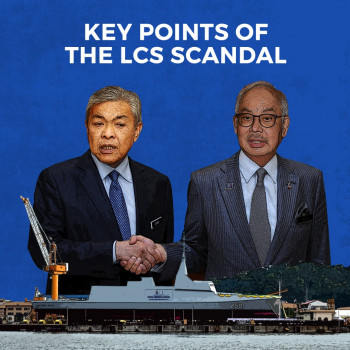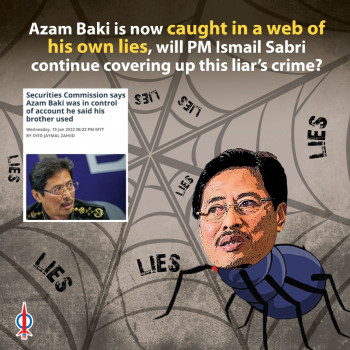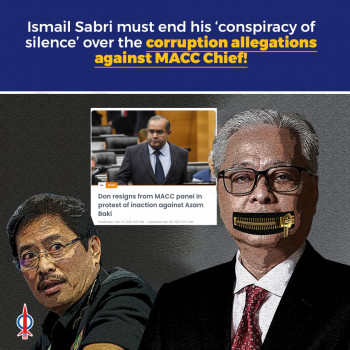It is painful and humiliating to see the agony of Sri Lanka – how a country which some seventy years ago during my school days was regarded as a “jewel” of South Asia had embarked on the road to ruin and destruction, ending as a bankrupt nation and a failed state, with the people burning not only the residences of the Prime Minister and Cabinet Ministers, but the President had to flee his presidential residence and the country to escape the wrath of the people after a more-than-72-hours stand-off with immigration personnel at the airport.

What is the lesson Malaysia can learn from Sri Lanka?
If Sri Lanka had any period in the last seventy years asked itself what went wrong, and self-corrected itself and reset its nation-building policies and principles, it could have avoided its sorry fate today.

Can Malaysia learn this important lesson from Sri Lanka?
Seventy years ago, Colombo was famous for Colombo Plan, a regional inter-governmental organisation to develop human resources in the south and south-east regions of Asia, but today, Colombo is associated with the infamy of a fleeing President after winning a landslide election and the burning of the residences of the Prime Minister and Cabinet Ministers.
If Malaysia wants to avoid the “failed-state” example of Sri Lanka before Malaysia’s Centennial in the coming decades, then Malaysia must undergo a national introspection as to “What Went Wrong” with Malaysia that we have not been able to fulfil our potential to be a world-class great nation and instead became a “kleptocracy at its worst”.
Among the mistakes we have made in nation-building policies and principles in the last half-a-century causing us to lose out to more and more countries, including the likely prospect of losing out to China and Indonesia by the end of this decade in the Transparency International Corruption index are:
· Failure to accept that Malaysia is a plural society and that our multi-racial, multi-lingual, multi-cultural and multi-religious diversity is our asset and not our liability;
· Non-Compliance with Article 8(i) of the Constitution that “All persons are equal before the law and entitled to the equal protection of the law”, where there are no first-class, second-class or third-class Malaysian citizens but where all are equal citizens.
· Doubts about the doctrine of separation of powers and the supremacy of the rule of law.
· Worsening of corruption – we have increased our national per capita income by 30-fold from 1970 to the present day but we have increased by more than 63,000-fold the corruption and financial scandals in this period, as illustrated by the RM100 million Bank Rakyat scandal in 1979, the RM2.5 billion Bumiputra Malaysia Finance (BMF) scandal in 1983 and the RM42 billion 1MDB scandal in the last decade.

· Declining educational standards and failure of the Educational Blueprint target for Malaysia to be above global average and be in top one-third of countries in international educational assessments.
· Deviations and abuses of the New Economic Policy and its continuance after 1990 although its time-frame was for 20 years.
· The first Malaysian Diaspora where over a million of the best and brightest Malaysians emigrated to make other nations great instead of Malaysia great.
· The 50-year Nightmare of Illegal immigrants in Sabah given voting rights.
I have maintained that the most important question in Malaysia today is not who will win the next general election but whether Malaysia will become a failed state before Malaysia’s Centennial in the coming decades by avoiding Sri Lanka’s fate with a reset of nation-building policies and principles.
The Sri Lanka People’s Freedom Alliance coalition claimed a landslide victory in the Sri Lanka parliamentary election on 5th August 2020, winning 145 out of 225 seats, but in less than two years the Sri Lanka President had to flee the country.
Malaysians have proved they know what was right and wrong in the 14th General Election in 2018.
Can we say the same of the 15th General Election whether this year or in 2023?
Lim Kit Siang
MP for Iskandar Puteri



